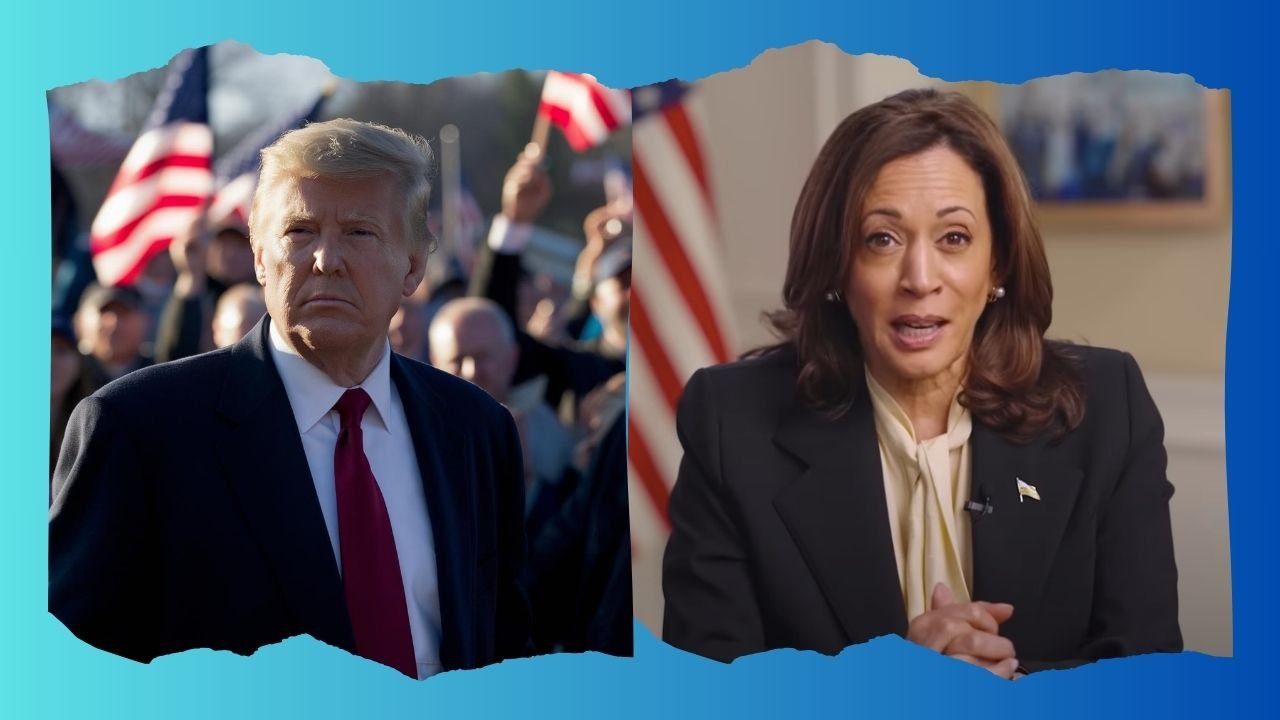Kamala Harris vs. Donald Trump- A High-Stakes Presidential Debate
As the 2024 presidential election approaches, the potential for a debate between Vice President Kamala Harris and former President Donald Trump is generating considerable anticipation. Given their contrasting backgrounds, political ideologies, and styles of communication, such a debate would not only capture national attention but also significantly influence the electoral landscape.
Let’s explore what a Harris-Trump debate could entail, focusing on key issues, potential strategies, and the implications for American voters.
The Stakes of the Debate
The stakes for both candidates in a presidential debate are enormous. For Kamala Harris, a debate against Donald Trump would serve as an opportunity to solidify her position as a capable leader and a strong contender for the presidency.
Having served as Vice President under Joe Biden, Harris has been at the forefront of significant policy discussions, from healthcare reform to climate change.
A successful debate performance could enhance her credibility and appeal to undecided voters.

For Donald Trump, a debate represents a chance to reassert his dominance within the Republican Party and showcase his appeal to the American electorate.
Despite facing criticism during his presidency, Trump remains a formidable figure in American politics, with a loyal base of supporters.
A strong debate performance could energize his base and attract swing voters who may be disillusioned with the current administration.
Key Issues and Talking Points
In a Harris-Trump debate, several critical issues are likely to dominate the conversation, reflecting the priorities of their respective voter bases.
- Economy and Inflation
The economy will be a central topic, particularly given rising inflation and economic challenges faced by many Americans. Harris is likely to highlight the Biden administration’s efforts to recover from the COVID-19 pandemic, emphasizing job creation, infrastructure investments, and support for working families. She may argue that continued investment in social programs and green energy is essential for sustainable growth. Trump, on the other hand, would likely focus on his record during his presidency, touting the pre-pandemic economic growth and advocating for tax cuts and deregulation. He may argue that the current administration’s policies have contributed to inflation and economic instability. Trump’s populist message could resonate with voters who feel economically marginalized, framing himself as the champion of the working class. - Healthcare
Healthcare remains a pressing issue for many voters. Harris would likely advocate for expanding access to affordable healthcare, potentially promoting the public option as a means to improve the healthcare system. She could draw attention to the administration’s efforts to lower prescription drug prices and expand coverage under the Affordable Care Act. Trump might counter by emphasizing his administration’s efforts to dismantle parts of the ACA while promoting free-market solutions. He could argue that competition will drive down costs and improve healthcare access. This debate over healthcare could highlight broader ideological differences between the candidates, with Harris championing government intervention and Trump advocating for limited government involvement. - Climate Change
Climate change is another critical topic that would likely arise during the debate. Harris has made climate action a cornerstone of her political agenda, emphasizing the urgency of addressing environmental issues through renewable energy investments and international cooperation. She could present the Biden administration’s climate policies as essential for future generations. Trump, however, has historically been skeptical of climate change initiatives, often prioritizing energy independence and economic growth over environmental regulations. In the debate, he might argue that excessive regulations stifle economic growth and job creation. This clash on climate policy could reveal deep divisions within the electorate, as voters weigh environmental concerns against economic stability. - Social Justice and Inequality
Given the increasing focus on social justice issues, a debate would likely address systemic racism, police reform, and income inequality. Harris, with her background as a prosecutor and civil rights advocate, would likely emphasize the need for comprehensive reforms to address systemic injustices and promote equity. She may highlight initiatives aimed at supporting marginalized communities. Trump might respond by emphasizing law and order, arguing that strong policing is necessary to maintain safety in communities. He could frame his approach as one that prioritizes the rights of all citizens while criticizing what he sees as excessive political correctness. This debate could engage voters on critical issues of race and justice, prompting them to consider their values and priorities.
Communication Styles and Strategies
One of the most intriguing aspects of a Harris-Trump debate would be their distinct communication styles.
Harris is known for her articulate and composed demeanor, often relying on facts and statistics to make her case.
She has a talent for connecting with her audience on a personal level, drawing on her experiences and values to resonate with voters.
In contrast, Trump’s style is characterized by a direct, sometimes confrontational approach. His use of humor, hyperbole, and catchy phrases tends to energize his base and capture media attention.
Trump’s willingness to engage in aggressive rhetoric may play well in a debate setting, especially if he can effectively challenge Harris’s positions and portray himself as a strong alternative.
Both candidates will need to be strategic in their approach, aiming to appeal to undecided voters while energizing their bases.
Harris may seek to project empathy and competence, while Trump may focus on rallying support through his populist messaging.
Implications for Voters
A debate between Kamala Harris and Donald Trump would have significant implications for American voters. It would serve as a critical moment for voters to assess the candidates’ positions, personalities, and readiness for the presidency.
A compelling performance by Harris could bolster support for the Democratic ticket, particularly among women, young voters, and minority groups.
Conversely, if Trump successfully resonates with his base and sways undecided voters, it could shift the momentum in favor of the Republican Party.
Ultimately, the Harris-Trump debate would encapsulate the polarized nature of contemporary American politics. As voters grapple with the pressing issues facing the nation, they will look to the candidates to articulate their visions for the future.
Regardless of the outcome, the debate would undoubtedly be a defining moment in the 2024 election cycle, shaping the political landscape for years to come.
Wrapping Up
In a potential debate between Kamala Harris and Donald Trump, the stakes would be incredibly high. With key issues like the economy, healthcare, climate change, and social justice at the forefront, both candidates would have the opportunity to present their visions for America.
As they navigate their contrasting styles and strategies, the debate would not only highlight their differences but also reflect the broader divisions within the electorate.
As the nation gears up for the 2024 election, the impact of this debate could resonate far beyond the ballot box, shaping the future of American politics.




